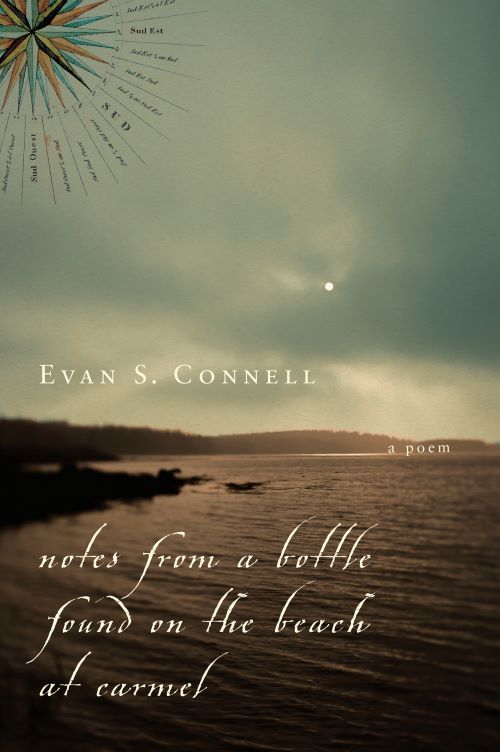Notes from a Bottle Found on the Beach at Carmel: A Poem by Evan S. Connell was published half a century ago. I came to it more than a decade ago, when I decided to serve poems and my literary curiosities. A timely revelation. Now my own first poetry collection is out in a bottle at sea, I pick up Connell’s poem again and revisit the initial awe. This poem gleans materials from the oblivion of history and gathers accumulative force, as facts become allusive and feelings illusively labyrinthine. Connell is frank about his method:
I arrange and interpret memorable items
as vipers out of necessity, by immense labor
and with difficulty, draw themselves free
from the confines of their early, narrow sac.
Vestigial shards of old legend and lore dart in and out of vertiginous fragments of human folly and futility, now like lightning on a clear day, now like fireflies on a talkative night. The “I” slyly travails through historical significance and triviality until the tribulations of fear, faith, and ferocity surface in a dizzying dream state, hauling history into the prophetic present, where associative meanings are distilled into a crude and cruel illumination. “In the confluence of hand, head, eye, and brow,” the metamorphosing “I” remains intactly resolute in its unsatiable quest for the hidden truth.
Every prayer I unite with some other,
that in such a way countless voices
raised in a multitude of accents
may join, creating a single invocation.
The distance of time does not obliterate but intensifies, “through the gates of memory,” the awe from my first reading. As I grow out of my younger self and the experiment of my first book, this poem welcomes a new reading that awaits infinite variations of translation. Connell’s poetic invocation has no parallel in our time. A moral compass of any time, this vatic poem is “words for today.”




